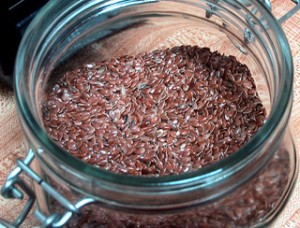 New vegetarian omega-3 from Echium seed oil offers fish oil benefits. In the wake of National Vegetarian week, nutrition scientist Dr Nina Bailey discusses a new vegetarian source of omega-3 fatty acids from echium seed oil, which converts to long-chain fatty acids up to 5 times more effectively than flaxseed.
New vegetarian omega-3 from Echium seed oil offers fish oil benefits. In the wake of National Vegetarian week, nutrition scientist Dr Nina Bailey discusses a new vegetarian source of omega-3 fatty acids from echium seed oil, which converts to long-chain fatty acids up to 5 times more effectively than flaxseed.
CAMBRIDGE, UK, May 22, 2009 /Medical News Articles/ — In support of National Vegetarian Week 2009, nutrition scientist Dr. Nina Bailey seeks to raise the importance of incorporating omega-3s into the vegetarian diet, and proposes ways to do so without compromising on ethics.
At over 7% of the UK population, a significant 4 million and growing steadily, [1] vegetarianism is an ever-increasing preference for many people, especially among the younger generation, up to 12% of whom opt to cut meat and fish out of their diet. Whether because of the increasing availability of vegetarian options in supermarkets and restaurants, growing concern over the environmental impact of animal farming, animal welfare, or attractive appeal as a healthy lifestyle option, the vegetarian demographic has shed its sandal-wearing, lentil-eating image and now boasts a diverse population, young and old, of various ethnicities and backgrounds.
Whilst scientific evidence does indicate that a plant-based diet offers significant health benefits in terms of heart disease, strokes, lower incidence of certain cancers, a healthy body weight and longer life expectancy, [2],[3],[4] vegetarians, like meat-eaters, still need to eat a well-balanced diet and ensure they get enough fiber from whole grains, fresh fruit and vegetables, enough of the right types of protein and amino acids (which certain types of vegetable provide in plentiful quantity), as well as another type of essential nutrient – omega fatty acids. Necessary for the formation of healthy cell membranes, humans rely on these good fats not only for brain function, but also for the production of hormone-like substances called eicosanoids, which regulate several important functions including blood pressure and clotting, inflammation, the immune system and fluid balance.
Moreover, according to Dr Nina Bailey, “Low levels of omega fatty acids in the diet have been linked with increases in learning problems, mood disorders, circulatory problems, and skin conditions among the general population. By addressing these deficiencies and including the right types of omega-3 fatty acids in the diet, it is possible to address some of the symptoms associated with these problems.
“For vegetarians, this can be difficult, since the important omega-3s EPA and DHA derive mainly from oily fish. Whilst many vegetarians do consume flaxseed, the short-chain omega-3 ALA is a distant relative from the long-chain fatty acids, and the conversion rate tends to be very poor. Algal sources can offer an alternative but these tend to be high in DHA, with low quantities of EPA. EPA is important for neurological function as well as the production of eicosanoids, whose role in inflammation is critical.”
Whilst the vegetarian diet tends to be very healthy – with lower total fat, saturated fat and cholesterol intake than their meat-eating counterparts – their consumption of important long-chain omega-3s (found mainly in oily fish, with some levels in enriched eggs) is significantly lower, which is also reflected in tests of plasma levels. [4] The government recommendation for two portions of fish weekly to achieve a daily intake of 0.45 g omega-3, is plainly not an option for vegetarians, and so vegetarians have, until recently, been reliant upon flaxseed oil to provide the short-chain omega-3 ALA, with the idea that the body will convert this to the important long-chain omega-3s such as EPA and DHA.
The problem is that the conversion of ALA in flaxseed oil to EPA and DHA in the body is reliant upon the presence of certain enzymes, making it a slow and inefficient process – particularly so when enzyme activity is impaired for any reason. Factors limiting this process in the body include stress, ageing, alcohol, caffeine, low levels of vitamins and minerals, as well as viral infections and diabetes.
The good news is that another, more efficient precursor, has recently been launched in the UK, in the form of SDA from echium seed oil. Indeed SDA is a closer relative to the important long-chain omega-3 fatty acid EPA than ALA, and is converted to EPA in amounts up to 5 times greater than other vegetarian omega-3 oils containing just ALA.[5] Contained in supplement form in the product Echiomega, SDA bypasses the enzyme ‘blocks’ which easily interrupt the conversion to the important long-chain omega-3 fatty acid EPA, known for its potent anti-inflammatory by-products and mood-regulating effects.
Echium seed oil also contains other beneficial fatty acids, including the powerful anti-inflammatory fatty acid GLA, as well as the omega-9 oleic acid found typically in olive oil and synonymous with the health benefits of the Mediterranean diet. Research also indicates a synergistic effect within echium seed oil, owing to the combination of SDA with GLA, which reportedly elevates EPA levels more efficiently than SDA alone. [6] Echiomega, available from good health food shops or mail order from manufacturer Igennus (see http://www.igennus.com/) is the ideal nutritional supplement for those who are vegan or vegetarian, to boost the levels of the important omega fats in the diet.
References
[1] The Vegetarian Society, Available: http://www.vegsoc.org/news/2000/21cv/introduction.html [Accessed 13th May 2009]
[2] Key, T.J. E Fraser, G.E. et al (1999) Mortality in vegetarians and nonvegetarians: detailed findings from a collaborative analysis of 5 prospective studies, American Journal of Clinical Nutrition 1999 70: 516S-24S.
[3] Fraser G.E. (2009) Vegetarian diets: what do we know of their effects on common chronic diseases? American Journal of Clinical Nutrition. 89: 1607S-1612S.
[4] Key, T.J. Appleby, P.N. & Rosell, M.S. (2006) Health effects of vegetarian and vegan diets, Proceedings of the Nutrition Society 65: 35-41 Cambridge University Press. See also: Rosell M.S., Lloyd-Wright Z. et al (2005) Long-chain n-3 polyunsaturated fatty acids in plasma in British meat-eating, vegetarian, and vegan men. American Journal of Clinical Nutrition. 82: 327-34.
[5] James MJ, Ursin VM, Cleland LG. (2003) Metabolism of stearidonic acid in human subjects: comparison with the metabolism of other n-3 fatty acids. American Journal of Clinical Nutrition 77: 1140-5.
[6] Miles, E.A., Banerjee, T., et al (2004) The influence of different combinations of g-linolenic acid, stearidonic acid and EPA on immune function in healthy young male subjects. British Journal of Nutrition, 91, pp.893-903.
Press Release Contact Information:
Mina Nazemi
Igennus
Marketing Manager
9 Chesterton Mill, French’s Road
Cambridge, Cambridgeshire
UK CB4 3NP

